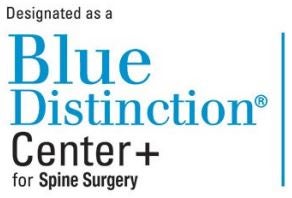Spine Treatments
Orthopedic and Neurosurgical Spine Treatments at the Spine Institute of Connecticut
We begin with an initial evaluation at our Spine Comprehensive Program and in most cases, initiate nonsurgical options to relieve pain and improve function and mobility. If you have more advanced or urgent conditions, we expedite referral to our orthopedic and neurosurgical spine surgeons who are skilled in the latest procedures.
Nonsurgical treatments
Nonsurgical treatments may be all you need to get back to your everyday activities. At our Comprehensive Spine Program, we evaluate and then treat back and neck conditions and injuries with nonsurgical treatments such as:
- Rehabilitation: Physical and occupational therapy can relieve pain and help you regain strength, mobility and function for daily activities.
- Injections: Steroid injections, nerve blocks and other types of injections can relieve pain and help rule out some causes of back or neck pain.
- Cognitive behavioral therapy: Psychological therapy can help focus thoughts and actions to manage and cope with pain.
- Alternative treatments: Integrative Medicine modalities such as acupuncture, yoga, tai chi, progressive muscle relaxation, massage and other methods can provide pain relief.
Surgical treatments
If non-surgical treatment doesn’t relieve your symptoms, you may be a candidate for surgery. Whenever possible, we use minimally invasive techniques for spine surgery. Our orthopedic and neurosurgical spine surgeons also have extensive expertise in open surgery for more complex cases.
We perform a wide range of spine procedures, including:
- Corpectomy: Surgeons remove a damaged vertebra (bone in the spine) and an adjacent disc (round, rubbery tissue that provides a cushion between vertebrae).
- Discectomy: Our surgeons can remove damaged discs with an open or a minimally invasive procedure (microdiscectomy).
- Foraminotomy: To relieve pressure on compressed nerves, surgeons widen an opening in a vertebra where nerves leave the spinal column.
- Fusion: This procedure joins two or more damaged vertebrae to stabilize the spine and relieve pain.
- Disc replacement: some of our surgeons are specially trained in techniques to actually replace worn discs with artificial implants.
- Kyphoplasty: This surgery restores a fractured vertebra’s shape and height. Surgeons insert a tiny balloon through a needle. They then inject a special cement into the space to repair the damaged vertebra.
- Laminectomy: Surgeons remove the lamina, the back part of the vertebra, to relieve pressure on the spinal cord.
- Vertebroplasty: This procedure is similar to kyphoplasty. Surgeons repair a fractured vertebra by filling it with a special cement without the initial step of creating space with a balloon.
- Robotic-assisted disc surgery: Some of our orthopedic and neurosurgical spine surgeons use computerized robotic techniques to assist with disc surgeries.
Orthopedic and Neurosurgical Spine Care: Conditions We Treat
Our specialized team treats neck and back pain caused by many injuries and conditions.
Bone conditions
- Arthritis of the spine (known as spondylosis)
- Congenital (present at birth) spine deformities, such as scoliosis (sideways curvature of the spine)
- Fractures, including traumatic vertebral compression fractures and stress fractures (known as spondylolysis)
- Osteoporosis (progressive bone loss due to age)
- Slippage or shifting of vertebrae due to arthritis or stress fracture (known as spondylolisthesis)
Soft tissue conditions
- Degenerative disc disease
- Herniated (ruptured) discs
- Radiculopathy (pinched nerve) such as sciatica
General back and neck problems
- Spinal stenosis (narrowed spinal canal)
- Traumatic injuries
- Tumors, both cancerous and noncancerous
Contact Us
To learn more about our spine services and treatments at the Spine Institute of Connecticut, click here or call (833) 707-7463.


